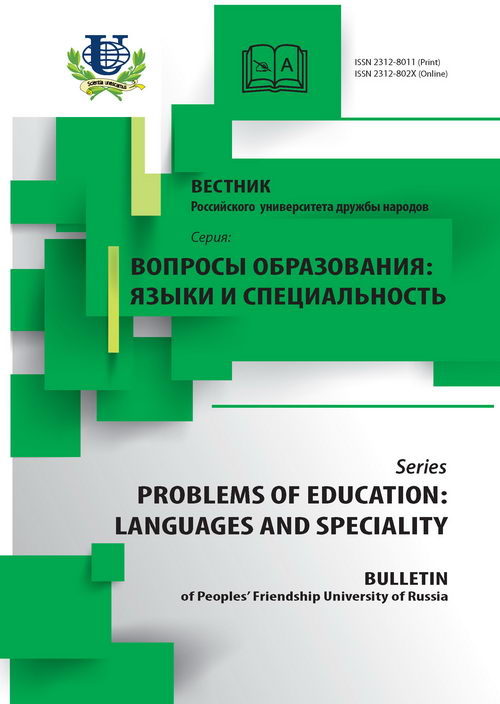SPECIFICITY OF TEACHING THEORETICAL LINGUISTIC SUBJECTS IN THE FRAME OF POLY-LINGUAL SITUATION
- Authors: Mirzoyeva LY.1
-
Affiliations:
- Suleyman Demirel University
- Issue: No 5 (2015)
- Pages: 121-125
- Section: EDITORIAL
- URL: https://journals.rudn.ru/polylinguality/article/view/13019
- ID: 13019
Cite item
Full Text
Abstract
The language situation in the Republic of Kazakhstan is characterized by existence of mass Kazakh-Russian bilingualism, i.e. high skills in two languages demonstrated by the majority of ethnic groups. It is stated in a number of works that Russian language in Kazakhstan should be considered as a specific variant; at the same time, in relation to functioning of Russian as the language of science, talking about variations is hardly possible. Moreover, high level of language proficiency, which is specific for Kazakh students (in case of both Russian and Kazakh departments of the Universities) allows us to use specific methods of teaching theoretical linguistic disciplines. Enshrined in Kazakhstan’s policy of tri-lingualism and commitment to the wide use of English as the language of science is already considered as a fruitful one: in a number of Kazakhstan Universities (especially for Master and Doctoral program students) theoretical courses are conducted in English. All of the above factors that presuppose the unique character of the language situation and language-level science, allow use in parallel to teaching Russian and English languages, a range of interactive techniques that are designed to create the conditions for critical thinking development within the framework of a multilingual situation.
References
Supplementary files














